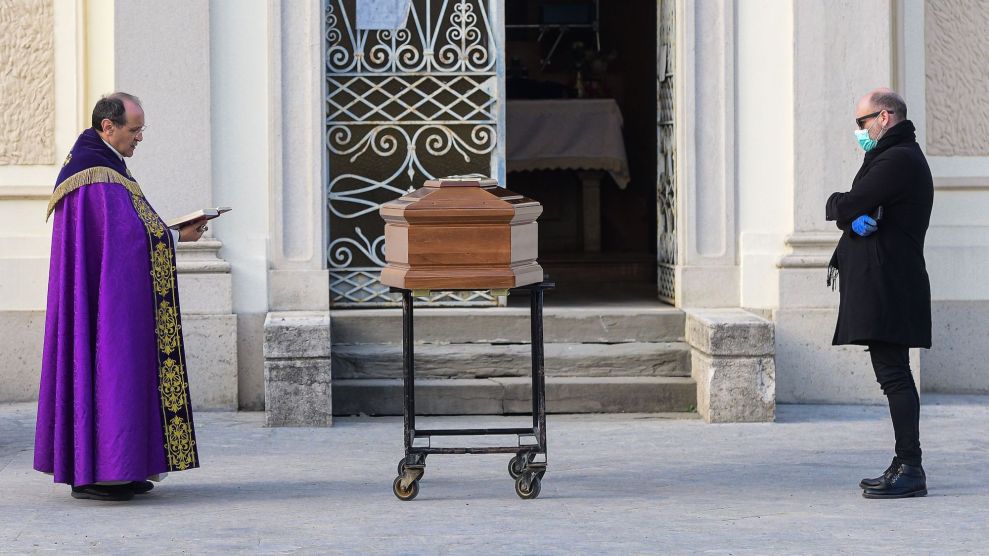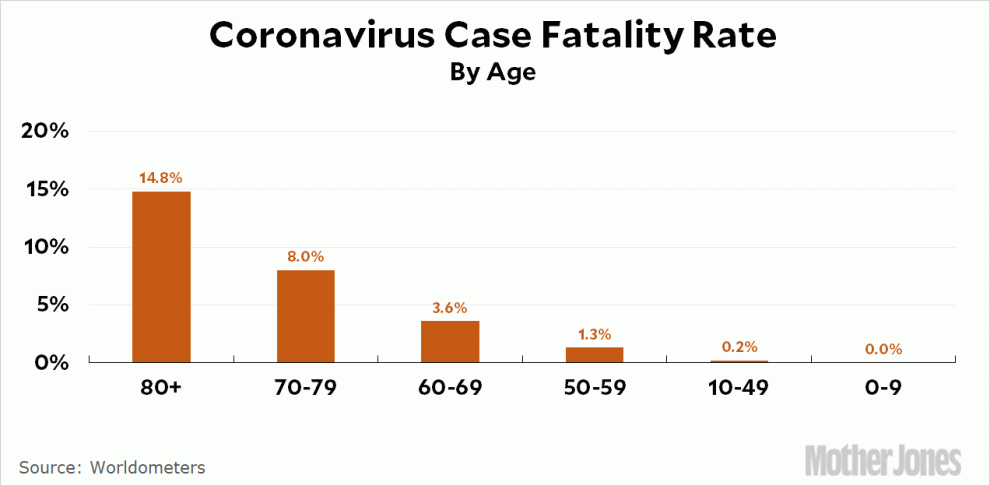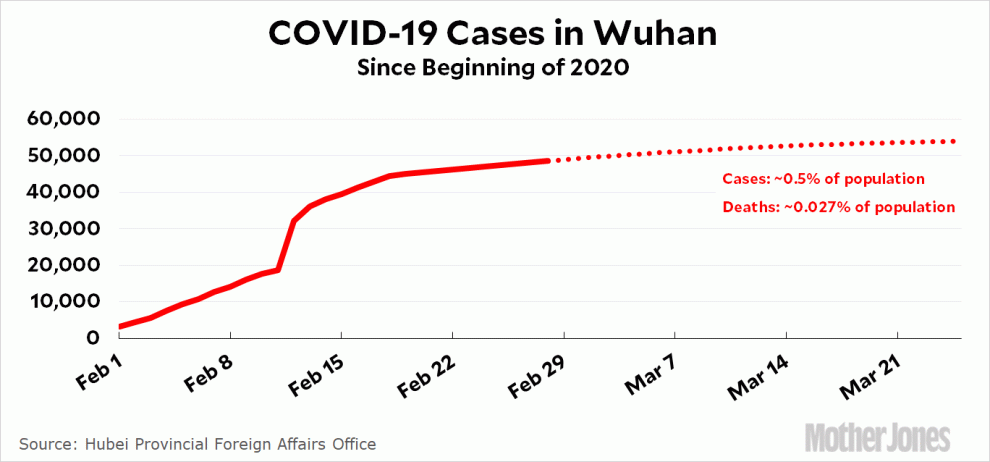Sometime in his last few days, while my dad was still conscious, I handed him the iPad my friends had sent him when he first got sick. It had been a constant companion these last 14 months. He took it to infusion appointments. To his weeklong trips to Baltimore to have chemo. He used it to keep up on the news. To watch YouTubes about home and auto repair he could no longer do. He watched history shows that, he informed me, had “terrible production values” but that held his attention, particularly when he’d become too weak to read. He FaceTimed with kids and grandkids.
His hands quivered as he pressed the biometric fingerprint reader that opened it. I took it from him and slowly picked my way through settings until I figured out how to add another fingerprint, my own.
My dad did not die of the coronavirus. He died of acute myeloid leukemia, first diagnosed at Christmas of 2018. But his final days, as we moved from hospital to home to hospice, were stalked by the virus. Every day the protocols got tighter, though not tight enough soon enough. Would we still be able to visit him? How many in the room? What if someone had come from abroad? When did each of us need to leave to get ahead of travel restrictions and home to our own families? What would happen when all the things you need to do after someone dies are upended or impossible?
So I say to you: You need to get on top of your parents’ personal information, the tools that you will need if they are hospitalized or die. And you need to do it right now.
For many of you this will require having conversations about the likelihood of death far earlier than you’d hoped. Conversations that one party or another has put off. Do not put it off a day longer. If you’re lucky, this will just prepare your family for future, more ordinary passings. But you don’t know if you’ll be lucky, and you need to be ready to manage their illness and death, probably remotely. And you’ll have far less warning than I did.
Historian Clint Smith has written eloquently about the need to interview elders, before it’s too late. Please do that. Record Zoom conversations where you ask them about family lore. And schedule and record the conversations with the grandkids, too. Be your own StoryCorps.
But I’m here to talk about the practical stuff. And this is what you need to think about.
Even if they’re safely sheltering in place, you should know the names and contact numbers of any doctors they currently see. What conditions do they have? What kinds of medications do they take, how often at what dosage, and which doctor prescribes and which pharmacy fills them? What is their Social Security number? Their VA number? Their date of birth? Where are their driver’s license and passport?
Ideally, they have a living will, which helps ease probate backlog and costs and also is a process that makes you think through a lot of end-of-life issues. But most people don’t. Do they at least have an ordinary will and an advance medical directive? If so, where are they? Particularly with the directive, get a copy; keep a copy in your phone. If the answer to either is no, you can help them use various online tools to do the basics. Here are the state-by-state requirements; here’s a general guide. A video recording of them reading their will can’t hurt, especially in the few states that still require wills be notarized. Do they have a medical power of attorney—which basically empowers family members to make decisions when they can’t? Many services offer ways to do that; here’s one. In addition to their spouse or partner, should children or other family members be added to make those decisions? (Yes.) Keep that in your phone, too.
What are their wishes regarding burial and cremation or anything of that nature, recognizing that funeral rites might be delayed indefinitely? Who are their best friends and others to keep apprised or notified after death? How do you contact them?
Which bank do they use? Which mortgage company? What bills are on autopay? What bills are paid by mail? Where is the checkbook? Is there more than one? What kind of life or long-term care or any other kind of insurance do they have? Is there a safety deposit box? Where? Is the deed to the house in it? What about the car title? What else is in it? Where are the keys?
You need account numbers and passwords for everything. EVERYTHING. Bank accounts and all the stuff I just listed. But also things you might not think about, like places where precious family photos might be: Facebook, iPhoto, any other services they use (and grandparents tend to use a lot). If you have very online parents, what are the passwords to things like Twitter? You’ll want to decide whether or not to delete accounts after you’ve scraped for photos, and you won’t have that choice without passwords.
And you need to really think through access. One person I was talking to on Twitter about these issues related that her dad had put all his accounts and passwords into a carefully assembled spreadsheet. But hadn’t given his family the password to open the spreadsheet.
Are your parents technologically savvy enough to make spreadsheets and send them to you via DropBox? If not, can you walk them through that? And if not, can they relay the most important information over the phone or via secure text? And if not even that, can they write it down in a notebook and tell you where they keep it?
Save voicemails.
If somebody ends up going to the hospital right now, for any reason, you may not be able to go with them. A phone or iPad with a charger will be key to any outside communication. They or you should put their name on the device in tape or otherwise. And wifi in hospitals even under the best of circumstances can be spotty. Talk this through ahead of time, too. “Dad, if we can’t FaceTime, we’ll send you videos via text.” Try to get a nurse to enter in the wifi password if they can’t.
When my dad first got sick, I went through a manic period of getting his home ready for convalescence, figuring out his insurance and banking, donating a wooden kayak he’d made by hand, other big stuff. (Also, I set up his new soundbar.) In the intervening months, my dad sent me and my brother information about his estate. My stepmom bought him a little book to put all his passwords in, but she wasn’t sure he’d used it. After he went into hospice I dug around until I found it. The writing was shaky, but he’d done his best. He’d even included Facebook.
As my dad became less and less responsive, my brother and I and our two stepsisters had to make agonizing decisions about when we would leave. One stepsister came in from Europe to say her goodbyes. The next day guests who’d traveled abroad were banned from visiting, and she flew back to her preschooler. When it was clear that San Francisco was going to lock down, I too made the decision to leave, to return to my own son. It is what I believe my dad would have told me to do.
Before I left, I showed my stepmom, my other stepsister, and my brother some of the highlights of all the years and years of photos he’d stored on iPhoto. My dad had worked at National Geographic as an editor for many years, and up until the end he was taking pictures of the ospreys and the creek in front of his house. And pictures of trees and flowers, much like the ones I often post to Twitter. That made me smile, as did the photos of me and my brother as sullen ’80s teens. There were digital albums full of the trips he and my stepmom took all over the world. And of course, the grandkids. “I’m going to take this back to San Francisco,” I said, “and make sure we all get copies of whatever photos we want.”
Two days later he died.

















